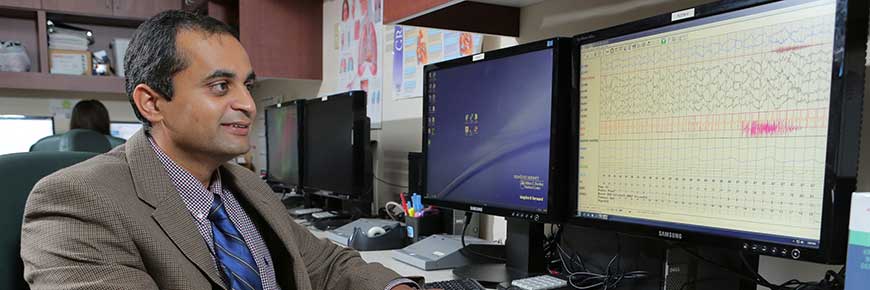Clinical Trials - Penn State Cancer Institute
Clinical Trials

Find clinical trials for which you might be eligible
Introduction to Clinical Trials
Research and clinical trials have helped to advance the treatment of a number of cancers. Penn State Cancer Institute offers many patients the opportunity to participate in a clinical trial. Clinical trials are highly regulated and undergo review by various committees to ensure the scientific merit of the trial, as well as the protection of human subjects who participate.
What is a Clinical Trial?
Clinical trials are research studies in which people (patients) help doctors find ways to improve health and health care. Many of today’s standard treatments for cancer are based on the results of previous clinical trials. Progress made through clinical trials has improved outcomes related to life expectancy and symptom management for cancer patients.
The clinical trial will be explained to you in detail before you sign consent to participate. You will be given a copy of the study consent to review. You will have time to ask questions and receive answers to any questions you have. Participation in a clinical trial is strictly voluntary. It is an option for you to consider when you discuss treatment choices with your provider. Your decision to participate or not to participate will not affect the quality of the care you receive.
What is the Purpose of a Clinical Trial?
A clinical trial investigates new cancer treatments or new ways of delivering existing treatments (i.e. sequence, timing, combination of drugs). Clinical trials examine the effectiveness of a new treatment alone or in comparison to other treatments. A clinical trial may explore a new way of using existing treatment in an effort to find a better way to treat cancer. The new treatment is evaluated to determine if it is better than or no different from the standard or already existing therapy.
Your Clinical Trials Team
Principal Investigator, Sub-Investigator, Treatment Physician
Clinical trials at the Cancer Institute are led by physician-investigators. Sometimes the trials are designed and developed by our physicians, and other times our physicians join a group of doctors throughout the country or throughout the world to allow our institution to offer a certain clinical trial option to our patients. The principal investigator manages the trial at our site. In addition to providing care while you are on the trial, they evaluate the data gained from all study participants.
Clinical Research Coordinator
The clinical research coordinator directs and coordinates patient care during a clinical trial and is a good contact for patients when they have questions. The clinical research coordinator will teach you about participation in the clinical trial, make sure the research protocol instructions are followed, teach you about side effects, and help manage clinical trial data. They will be in touch with you throughout your participation in the trial to make sure all of your questions are answered. Many other members of your health care team (i.e. nurses, radiation oncologists, pharmacists, etc.) will be involved in your care while you participate in a clinical trial in much the same way they would if you were not in a clinical trial.
Who has Oversight of the Clinical Trials?
Physicians, research personnel, non-research related staff, students, and community members serve on the Institutional Review Board (IRB). This diverse group of individuals provides varied expertise and perspective for the process of thorough review of the research submitted to them for approval. They must review and approve all research involving human participants before any study can begin. Members provide continuing review during the study to ensure that the research is conducted ethically and in compliance with all applicable regulations. The IRB also ensures that every person enrolled in a research study is participating voluntarily and has made an informed decision.
